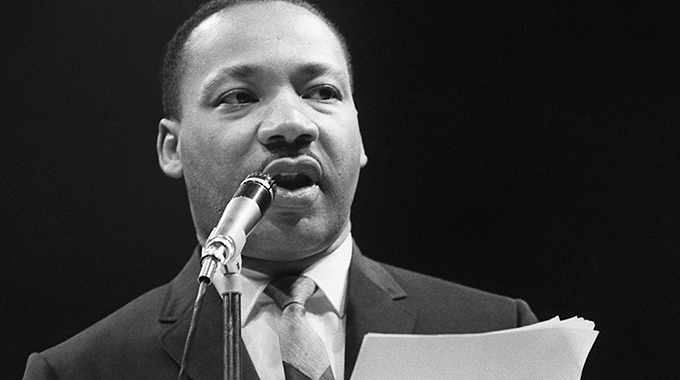When a woman brings a good man down
Elliot Ziwira @ The Book Store
“By all means marry; if you get a good wife, you’ll become happy; if you get a bad one, you’ll become a philosopher,” so reasons the philosopher Socrates. But really, might there be an ideal partner somewhere for every one of us, or all is merely coincidental, or controlled by fate? Can a woman change a man and in what way; or she is simply the one that should change or be transformed by Time?
The reading of Thomas Hardy’s “The Mayor of Casterbridge” (1886) is quite revealing as the book questions Man’s rather warped notion that he controls the world, which he believes to be a culmination of his architecture. Instead he is just a mere fly in the intricate web of his existence, where a monstrous and invisible hand, with a single swift swish, has the capacity to phenomenally catapult him to dizzy heights or condemn him to the lowest ebb within the blink of an eye.
No matter how brilliant one’s decisions may be, even in the choice of a partner to take to the matrimonial bed, one may not be in control of the outcomes, which in a way are at the mercy of the invisible hand of fate. Time puts us all in an hour glass like drops of a strong perfume, whose scent though powerful will not last forever as the vagaries of nature take their toll.
In “The Mayor of Casterbridge”, Thomas Hardy tells the story of an ordinary man whose rise up the social, political and economic echelons is phenomenal; so is his subsequent fall. The book chronicles the sad story of Michael Henchard, a hay trusser out of employment, who in a moment of drunken stupor sells his wife Susan and daughter Elizabeth-Jane to a sailor at a fair in Weydon-Priors.
After a futile search for his family, he decides to go to Casterbridge where fortune smiles at him, and prosperity leaps onto his lap. Embracing his good fortune, he becomes the mayor and chief magistrate of the town. However, as fate would have it Susan and Elizabeth-Jane come back into his life, and events take a sad twist.
After losing everything to his former friend, manager and confidant, Donald Farfrae, the tragic hero leaves the town in the same way he came; unemployed, poor and disgraced.
Michael Henchard is a temperamental man, whose ill- temper may have caused his downfall, it is true. Temper is a weakness in man which somehow clouds his judgment and is detrimental to progress; that also is true. However, if all events in the protagonist’s life are to be put to scrutiny, it may be interesting to note that he really has no control over them.
Prior to Henchard’s decision to sell his wife Hardy writes: “The conversation took a high turn, as is often on such occasions, the ruin of good men by bad wives, and, more particularly, the frustration of many a promising youth’s high aims and hopes, and the extinction of his energies, by an early imprudent marriage, was the theme.”
It may be true that the tragic hero is under the influence of alcohol, but the fact that he believes that his bad fortune has to do with his early marriage also stands true as the following suggests: “I married at 18, like a fool that I was; and this is a consequence of it . . . I haven’t more than 15 shillings in the world, and yet I am a good experienced hand in my line. I’d challenge England to beat me in the fodder business; and if I were a free man again I’d be worth a thousand pound before I’d be done o’t.”
In his regret, perchance the tragic hero conforms to Socrates’ idea of the bane of choice pertaining to marriage or celibacy when he says: “As to marriage or celibacy, let a man take which course he will, he will be sure to repent.”
However, it is not by choice but fate that Henchard marries Susan, the “bad woman” that stalls his progress, and his destiny is to be a man of property and a mayor of Casterbridge, a town he never thought of visiting; so naturally his wife has to be out of the way. It has not been the first time that selling his wife crosses his mind as Susan tells us: “Michael, you have said this nonsense in public places before. A joke is a joke, but you may make it once too often, mind.”
When the auction begins everyone present takes it for a joke, raising bids until unbeknown to them all, a sailor who has arrived five minutes to the stroke, takes it up and pays the five guineas required and takes the lot much to the chagrin of all. Had not the sailor arrived, then Henchard wouldn’t have sold his family, and his search for it the following day and months on, wouldn’t have yielded nothing and the beckoning Casterbridge would have been disappointed. It is worth noting that Susan is willing to go, as she affirms to the sale as Newson, the sailor puts a condition that she has to be willing.
Jean Rostand writes in Le Mariage (1927) that: “Never feel remorse for what you have thought about your wife; she has thought much worse things about you.” How true really this assertion is, for indeed Susan seems to be feeling the same, or even worse about her husband.
Her meekness and ignorance is also to blame as she believes that the sale is legally binding. The fact that Henchard takes an oath to desist from taking any “strong liquors for the space of 20 years to come, being a year for every year that I have lived”, prepares him for a new life.
Despite his temperamental nature, arrogance and impatience, the protagonist rises to become the most prominent man in Casterbridge, as a mayor, chief magistrate and a corn and hay merchant. His star wanes not because of his temper but because of Time.
The vagaries of nature affect his wheat which could have dragged his reputation into the slime, if Donald Farfrae had decided not to stop by. Donald’s offer to help him to reclaim the bad wheat at no cost convinces the good mayor that he is the man that he has advertised for; provident sent; thus he convinces him to make a start in the town as his manager, instead of proceeding to Bristol where he is headed. In the thick of things Susan and Elizabeth-Jane come back into his life after 18 years, and Henchard who has vowed not to marry again as long as she lives somewhere, remarries her.
One cannot help sympathising with Susan and her daughter, as one cannot also fail to realise that through fate she is his downfall. The allusion that she is the “imprudent”, “bad” wife hangs between Henchard’s sunshine and decline. Her death does not only rob the protagonist, whose star is on the wane, of a companion, but it also exacerbates his suffering as he learns, through a letter by Susan’s hand, that the adorable Elizabeth-Jane is not his daughter but Newson’s, theirs having died three months after the auction.
As the limelight fades on Henchard, it glows on Farfrae, whose destiny is intertwined with his. Yes, he has taken him in as a friend and brother, and his dismissal of him in a moment of jealous madness, could not have been warranted, but the fact that he decides to be in the same business like his, is as callous as it is deceitful.
It is sad that a man’s worth can only be determined by what he is, and not so much by what he does, as he strives to shape his destiny, which ironically he has no power over. Susan’s arrival in Casterbridge takes the allure from Henchard as the story becomes Farfrae’s which he dominates for the better part of it. Henchard’s death in a desolate swamp, as poor as the day he was born, and his burial without honours, lays bare the futility of life’s toils and the finality and triumph of death.
Womanhood, in the form of the furmity woman, Susan, Lucetta and Elizabeth-Jane, seems to connive to bring him down. Indeed a woman can bring a good man down!








Comments